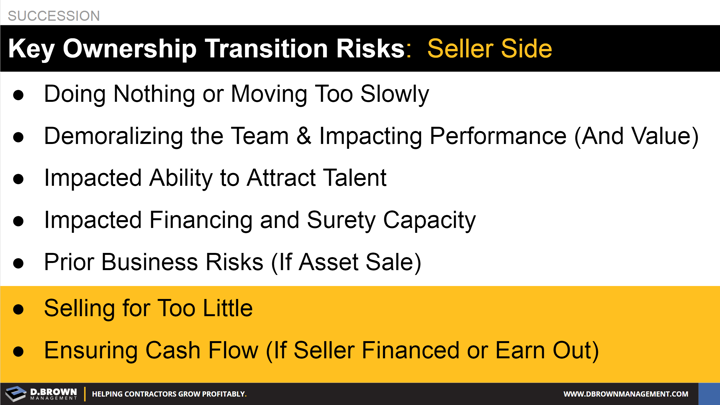In general, each party will tend to discount the risks and concerns of the other and that impacts the ability to create the best deal.
The biggest seller risks are:
- Doing nothing or moving too slowly is the biggest danger given today’s changing construction industry and shortage of executive level talent.
- If not done with the right levels of timing, education, and communication, the process is likely to demoralize the team and impact performance, and therefore, value.
- Following any internal demoralization, the ability to attract great talent will become impacted.
- Banks and sureties will start to look at their risks very differently if the business does not have a clear succession plan, especially as the owner(s) get into their late 50’s.
- If it is an asset sale, the current owner(s) must be able to roughly quantify the existing risks and how to mitigate them.
- Valuing and selling the business for too little, therefore not capturing the value they have created during their period of ownership.
- Since most sellers will be financing or earning out a portion of the sell price, they have significant risk around whether the business will be able to continue to generate the cash flow required.

